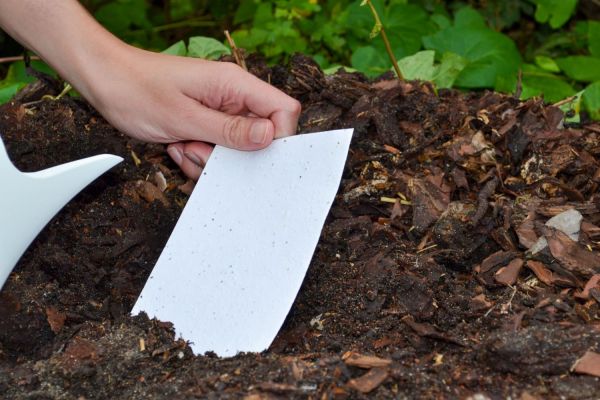Eco gifts made of these sustainable materials

Products at Greengiving are in most cases made from sustainable materials that come directly from nature and are biodegradable. However, there are still some differences between those materials that are not always easy to explain in a product text. For example, what exactly is sustainable about wood, bamboo, cork, wheat straw, RPET, cotton or jute? These commonly used materials are all discussed in this blog. Read on!
1. Wood
Wood from sustainable forests is incredibly eco-friendly, as trees absorb CO2 and produce oxygen. By replacing a used tree, you are not helping to deforest an area. That is the idea of FSC-certified wood. The sturdiness of wood makes the material popular.
2. Bamboo (fibre)
Although many people think bamboo is a type of wood, it is not. It is in fact a type of grass, but one that grows very tall and strong and also grows at lightning speed. It can be harvested in quick succession, which means: sustainable! In addition, bamboo is pest-resistant and needs relatively little water. The versatile material can be used in almost everything, so we have a wide range of bamboo promotional gifts.
3. Cork
Cork is sustainable because it does not require a tree to be cut down. Only the bark of the cork oak is harvested, after which new bark grows back. This makes cork an efficient, renewable resource with no waste. This is because cork is both recyclable and biodegradable.
4. Wheat straw
The word actually says it all: wheat straw is made from the remaining stalks after harvesting wheat grain. Normally, the stalks are burnt, leading to air pollution. When they are used, they are again from a renewable source, as wheat grows every year. When wheat straw is mixed with (durable) plastic, a sturdy material is created.
5. RPET
Recycled plastic or RPET saves on the use of fossil fuels in production. It also emits less CO2 and consumes less water when producing RPET than plastic. How about all those millions of PET bottles that, instead of bobbing around in the plastic soup, now get a second life?
6. Cotton
The sustainability of cotton is increasingly questioned, and not entirely unjustifiably so. After all, growing and producing cotton requires a lot of water. Nevertheless, almost the entire cotton plant is used during harvesting, so little is wasted. Furthermore, the material is always natural and biodegradable. If the cotton is Fairtrade or GOTS certified, you are assured of fair trade.
7. Recycled cotton
There is now an even more sustainable variant for cotton, namely recycled cotton. This cotton consists of the offcuts from e.g. clothing or other items from the textile industry. So it is material that would actually be thrown away. By collecting and processing the cuttings, it can be made into a beautiful new product. The advantage: no new cotton needs to be planted and harvested, saving hundreds of litres of water. Take a look at our bags made of recycled cotton.
8. Jute
Jute fibres come from a plant where the outer stem and bark are used in production. After only 4 to 6 months of growth, the jute plant is ready for harvesting and has a high crop yield. So it is an efficient and very strong raw material! In addition, like bamboo, jute does not need pesticides or fertiliser and promotes soil fertility. Add to that the material's abrasion resistance and it results in perfect durable material for corporate gifts.
9. Hemp
We quickly have certain associations with hemp, but the raw material is becoming increasingly popular for clothing. The hemp plant is a tremendously fast and easy-growing plant with strong fibres. The plant has a low carbon footprint. Moreover, almost all parts of the plant can be used, e.g. for textiles, rope and paper. In terms of longevity, clothing made of hemp is a sustainable choice, as it lasts a long time due to its strong fibres. Moreover, the fabric is breathable and moisture-absorbent.
10. Coffee grounds
A material that you would say is impossible to make, but it turns out that it is not. Coffee grounds are a by-product of every cup of coffee brewed. The world's population drinks around 400 billion cups of coffee every year, so that makes for a lot of coffee grounds. Instead of throwing this away, it can be recycled into utensils such as notebooks. That saves on waste again!
Other materials
If all goes well, you now have a better idea of exactly what each material is and what it is made of. At Greengiving, many corporate gifts are made from (one of) these materials. But we also have products made from other sustainable materials, namely: PLA corn, recycled stainless steel, recycled aluminium, recycled felt, milk cartons, canvas, glass, ceramics, stone paper, wheat straw, sugarcane...
Need help?
Looking for a great product made from a particular material? Type the material in the search bar and all kinds of products made from that material will appear. Feel free to contact the product specialists if you are not quite sure. They'll be happy to help you!
Follow us on social media
Be the first to hear about our news
Popular blogs




